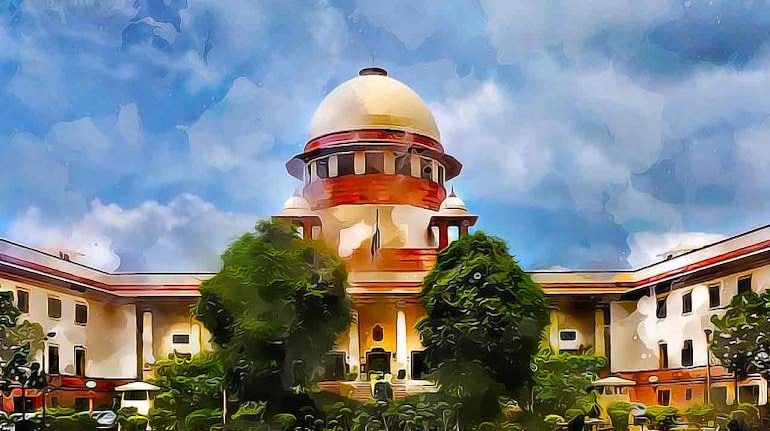



Why should the new owner of a bankrupt company bear the brunt of the legal problems pertaining to the old regime? That’s a question that haunted the potential buyers of bankrupt companies, making them sceptical about the whole insolvency and bankruptcy code (IBC) process.
But, the Supreme Court has finally brought in much-needed clarity on this question. On January 19, the apex court upheld Section 32A of the IBC granting statutory immunity to successful resolution applicant from prosecution.
“A bankrupt company and its assets cannot face criminal proceedings once it is sold to new owners,” ANI quoted a bench of the apex court headed by Justice Rohinton Fali Nariman.
“Imperative needs to attract resolution applicants who would not shy away from offering reasonable and fair value. Legislature thought it is necessary to provide legal immunity to corporate debtor, provision is well thought out,” said the court.
Essentially, the court’s ruling says that new owners will not face legal troubles or probes linked to the old cases faced by previous promoters.
Both bankers and analysts have wholeheartedly welcomed this move.
“This is certainly good news for the IBC mechanism since it will give confidence to new owners,” said a senior banker who didn’t want to be named. “The court has given an assurance which matters to prospective acquirers,” said the banker.
As reported by Moneycontrol on Tuesday, this SC ruling may prove to be a breakthrough in cases like Bhushan Steel resolution where promoters are facing legal issues and probes. It could reduce the overall timeframe required for resolution, bankers said.
“This confusion (legal immunity to new owners) shouldn’t have been there in the first place,” said Naresh Malhotra, a senior banking consultant and former SBI executive. “Now that the court has said it clearly, it should help in building confidence among every stakeholder in the IBC process,” said Malhotra.
A push for IBC
Came into effect in 2016, the IBC mechanism in India is still at early stages. Considered as a major reform in the Indian banking sector, the IBC platform has faced roadblocks in the initial years. Except for a few large cases, there hasn’t been major progress in the IBC channel. The number of IBC cases have been increasing over the last three years.
But, with the COVID-19 increasing the stress on the economy, the IBC cases are likely to escalate further. But, this does not mean the stress will go away. Analysts agree that the banking system will face some stress but the extent may be less than initially expected.
As part of the COVID relief package, the government had put all the fresh IBC cases on hold till March.
As part of the economic package, the government had made a few key amendments to the IBC rules. These include increasing the minimum threshold to initiate insolvency proceedings raised to Rs 1 crore, special insolvency resolution framework for MSMEs, suspension of fresh initiation of insolvency proceedings and exclusion of COVID-19 related debts from the definition of default under the code.
Timely resolution of stressed assets is key in the banking system and IBC plays a key part in the resolution of large unresolved corporate debt. Banks try to resolve stress on corporate accounts by offering them relaxations in the repayment terms, which is commonly called loan restructuring.
But, in cases where resolution appears difficult through normal channels, IBC comes to their rescue. This ensures a resolution within a specific timeframe. Hence, strengthening of the IBC mechanism is even more important in the backdrop of a likely surge in the stress in the banking system.
In this context, the SC upholding Section 32A will give more comfort to the banking system with respect to stressed asset resolution.
“The SC order will go a long way since new owners will have more confidence in the IBC process,” said Jyoti Roy, equity strategist, Angel Broking. “This was one of the longstanding demand by the potential acquirers. Hopefully, now Bhushan Steel and power case can be closed,” Roy said.
According to Malhotra, more banks are likely to push several cases to IBC post-March on account of the stress in the financial system. “I expect an increase in the number of IBC cases and downgrading of loan accounts going ahead,” Malhotra said.
But, Roy said the actual quantum of restructured loans could be anywhere less than three percent of total loans as against five percent projected earlier. Banks were expecting around five percent loan recasts (of their book) at the start of COVID.
Initial guidance from banks suggests there are not many requests for restructuring from corporate clients. Most banks have given lower guidance on likely stress on their books. “The stress in the banking system is unlikely to be big as against the initial expectations,” Roy said.
The RBI expects the gross NPAs in the banking system to rise to 13.5 percent by September this year compared with 7.5 per cent a year ago. In a worst-case scenario, the GNPAs may surge closer to 15 percent of total banking industry loans, the RBI has said. More clarity on the asset quality situation will emerge only after big banks announce the results of the third quarter earnings.
Discover the latest Business News, Sensex, and Nifty updates. Obtain Personal Finance insights, tax queries, and expert opinions on Moneycontrol or download the Moneycontrol App to stay updated!
Find the best of Al News in one place, specially curated for you every weekend.
Stay on top of the latest tech trends and biggest startup news.